Since it’s Veganuary, I’m getting a bit more into the weeds with vegan living topics — the why and the how. I’d love to know from those who are reading this (please comment!):
Have you gone vegan? For how long? (me = 22 years; vegetarian since high school, 1 million years ago)
What was the last food you gave up? (For me it was goat cheese.) And if you’re not completely vegan, what’s the hardest food to give up?
Even if you’re not full-on vegan (everyone is welcome here), are you putting more plant-based foods the plate? What style of vegan food tempts you most?
(Did you know that if you hit the heart at the bottom or the top of this post, it helps others discover my publication on Substack? Commenting and restacking is helpful, too. Thank you!)
So today, let’s get into eggs. I get it — eggs are useful and for many people might seem hard to give up. It’s surprising how easy it is to substitute other foods, and today we’re is a slew of ways to do so.
Credit where due: This post was written by one of my interns, Anna Fiore, in her senior year at the local university in my town. I’ve embellished it with some supplementary info, but it’s still mainly hers. Thank you, Anna!
Good reasons to give up eggs
Whether you’re egg-free by choice (vegans don’t use eggs) or necessity (allergies or other health-related issues), here are a few good reasons to ditch them:
They’re a major allergen. Even if you’re not planning to go plant-based, many people are simply allergic to eggs.
Lower cholesterol & improve heart health: Egg yolks are loaded with cholesterol, which can increase the risks of cardiovascular disease and other serious health issues such as diabetes and high blood pressure. According to the Physicians Committee for Responsible Medicine (PCRM), “the fat and cholesterol found in eggs can harm heart health, etc.
Lower chance of food-borne illness: According to the FDA, eggs “may contain a Salmonella bacteria that can cause…food poisoning” and other health problems.
Environmental footprint of the egg industry: Industrial egg production facilities also generate harmful effects on the environment such as air pollution and the contamination of soil and water.
Although eggs generally have a smaller carbon footprint than industrial meat production facilities, there are still significant problems with the egg industry, not to mention inhumane conditions for the hens and discarded male chicks.
Kitchen staples that make great egg substitutes
You likely already have plenty of vegan egg alternatives on hand right in your kitchen. Innovative chefs and bakers have long used other ingredients in their kitchens to replace eggs.
The trick to deciding which substitute to use is whether the egg in the recipe is intended to be a binder or leavening. If the recipe already has a leavening agent like baking soda in it, then egg might serve as a binding agent or for added moisture.
If the recipe doesn’t call for a leavening agent, then egg might be the key to a light, fluffy product. Here are some great vegan egg replacements and best uses for each.
Applesauce
Applesauce is an ideal fat-free alternative for baking in recipes where there is already a leavening agent at work. Intended more for binding and adding moisture, unsweetened plain applesauce works best in things like cakes, breads, muffins, and other baked goods. Here are a few applesauce-based baked goods:
Tofu
A good source of protein and very close to the real thing, tofu can often be a surprising alternative in terms of texture and flavor. For scrambles, firm or extra-firm silken tofu are perfect, but you can also use regular tub tofu (firm rather than extra-firm is best), well-drained.
Season with favorite spices or herbs, and add veggies to replicate those breakfast dishes you know and love, like scrambles. Try these:
Pureed silken tofu is also great in recipes that already have a leavening agent and is often used for binding or adding moisture to dense goods such as cakes and brownies.
Avocado
Avocados are another great vegan egg alternative when the egg acts as a binding agent in the recipe. They are great for adding moisture to brownies and other baked goods, just make sure to mash them up well until they are creamy and smooth. One egg is equal to roughly ¼ cup of avocado. Try these fudgy Vegan Avocado Brownies.
Ripe Banana
Bananas are also excellent vegan egg substitutes. They add moisture to dense products such as cakes, pancakes, and brownies while also imparting some of their sweetness.
Using mashed banana, try making Easy Vegan Banana Bread with those very ripe bananas sitting on the counter. To replace one egg, use one medium ripe banana, well mashed.
Vegan yogurt
Vegan yogurt (soy, coconut, cashew, almond, and others) is another great vegan egg alternative for many baked goods and pancakes. This ingredient works best when there is another leavening agent present in the recipe. For binding and adding moisture, you need roughly ¼ cup of vegan yogurt to substitute for one egg.
Plain vegan yogurt is especially good used for savory baked goods in which you don’t want to add the sweetness of applesauce, like Savory Fresh Vegetable Muffins, that are great with soups and stews.
Aquafaba
Aquafaba may sound odd, but it is one of the most amazing of all the vegan egg substitutes. Aquafaba acts as a binding agent and is excellent in cookies and other baked goods.
It’s simply the liquid that comes from canned beans, with chickpeas being the most commonly and successfully used. To use aquafaba as an egg replacement in vegan recipes, use about three tablespoons of liquid to equal one egg.
Amazingly, aquafaba whips up just like egg whites to be used as meringue or in soufflés. Here is A Guide on How to Make Aquafaba, and a recipe for these quick and easy 4-Ingredient Vegan Meringues. Best of all, here are 20 amazing things you can do with aquafaba.
Flax Egg
Combining ground flaxseed, which gels when combined with water, has become a popular egg replacement. For each egg: Combine 1 tablespoon ground flaxseed with 2.5 tablespoons water in a small bowl, stir and let sit for 5 minutes. Flaxseeds can be purchased ground; it’s trick to grind tiny flaxseeds! For more detail, see How to Make a Flax Egg on Minimalist Baker.
Flax eggs are useful for making vegan burgers, vegetable fritters, pancakes, and baked goods. Here are 10 recipes using flax egg.
Chickpea flour
This popular legume flour is a fantastic base for vegan frittatas made in a skillet or baked. See a detailed and eminently flexible recipe for Skillet Vegetable & Chickpea Flour Frittatas.
Now that you know how to replace eggs in recipes with other vegan alternatives, you can experiment to see which alternatives give you the flavor and consistency you desire in your baking and cooking.
Vegan egg replacer brands
Here are several vegan egg alternative brands that will make your eggless baking and cooking easier. Because they're all plant-based, they're naturally cholesterol free:
JustEgg: This vegan egg alternative’s key ingredient is mung bean, a protein-rich legume. Just Egg tastes very much like egg, and it’s especially great for dishes in which scrambled egg or fritatta is the star.
Follow Your Heart’s VeganEgg: Follow Your Heart’s “VeganEgg” is another excellent vegan egg alternative. This soymilk powder-based substitute is seasoned black salt, which is a Himalayan rock salt with a sulfur-like flavor that gives products a taste similar to that of real eggs.
The Vegg Scramble: The Vegg Scramble is the first mass-produced vegan egg yolk product on the market. Designed to be scrambled and eaten just like a breakfast scramble, this plant-based egg alternative is also made using black salt and soy protein to give it an egg-like flavor. Each serving provides 20 grams of protein.
Bob’s Red Mill Egg Replacer: This long-standing, simple vegan egg alternative is a gluten-free baking essential. It is excellent for muffins, cakes, breads, and more.
Ener-G Egg Replacer: Another long-standing vegan egg alternative, Ener-G Egg Replacer is gluten-free, dairy-free, and soy-free. Since this vegan egg substitute contains some leavening agents, it’s been found to work best for baked goods like cakes and cookies.
Pegg’s Plant-Based Eggs: This new vegan egg alternative was born during the pandemic and is on a mission to make food more wholesome and sustainable. That’s why it is made using chickpeas for cooking and baking. Ground chickpea flour and other emulsifiers give this vegan alternative its eggy texture and flavor.
Simply Eggless Plant-Based Egg: Simply Eggless whipped up a liquid vegan egg alternative that is made entirely of plant-based ingredients. The key ingredient: lupin beans. This simple plant-based egg alternative is high in protein and excellent for baking and cooking. It can even be scrambled, just like eggs.
Make some eggless egg dishes!
Make sure to see the recipe roundup, 37 Eggless Vegan Egg Dishes for more recipes and ideas for cooking and baking egg-free alternatives to classic egg dishes.
My Etsy shop has reopened
I closed down for the holiday season; now, my Etsy shop has reopened. I know, that’s counterintuitive, but I didn’t want Media Mail packages getting caught in the holiday rush. It’s too prohibitive to send books any other way. Build your vegan cookbook library with some of my classic cookbooks at a great discount — less than from a store or you-know-who. Shipping is free, and books will come to you signed!
(Did you know that if you hit the heart at the bottom or the top of this post, it helps others discover my publication on Substack? Commenting and restacking is helpful, too. Thank you!)




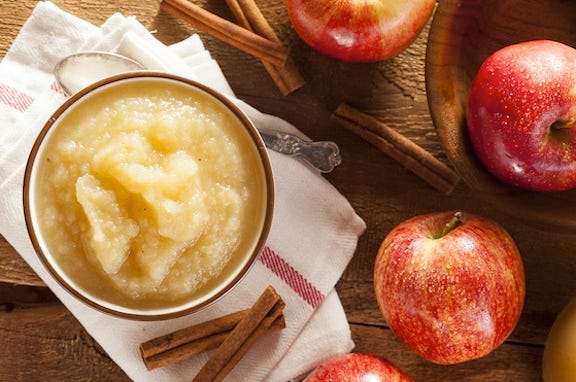
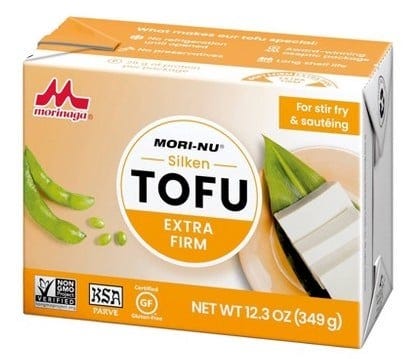
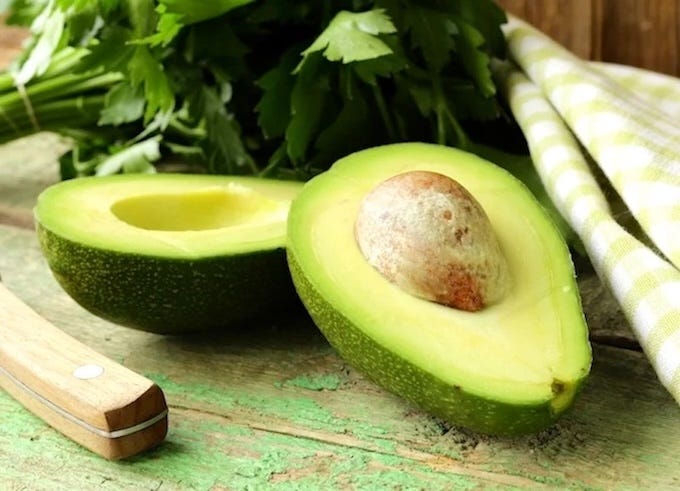
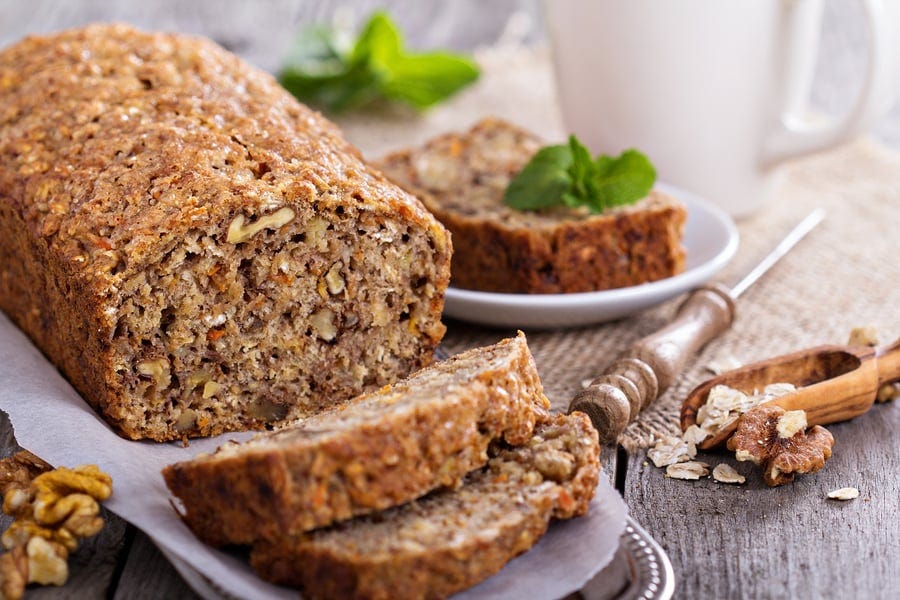
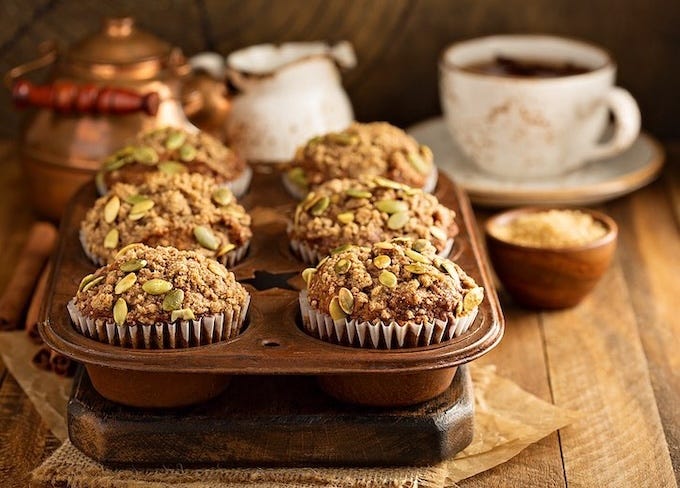
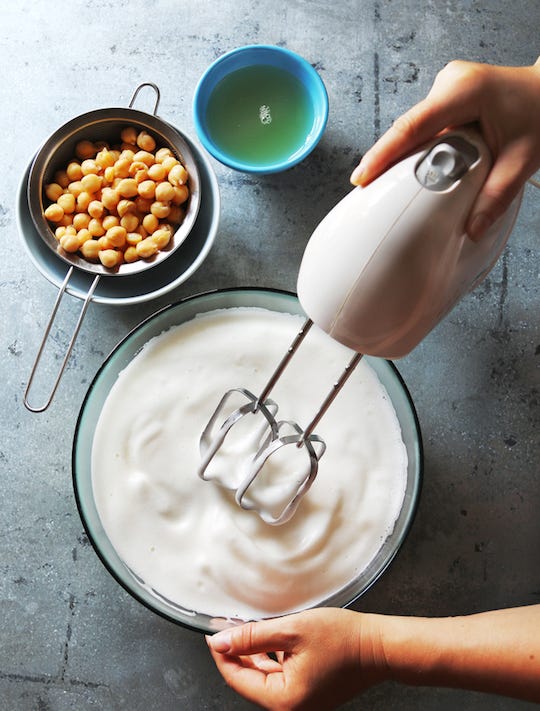
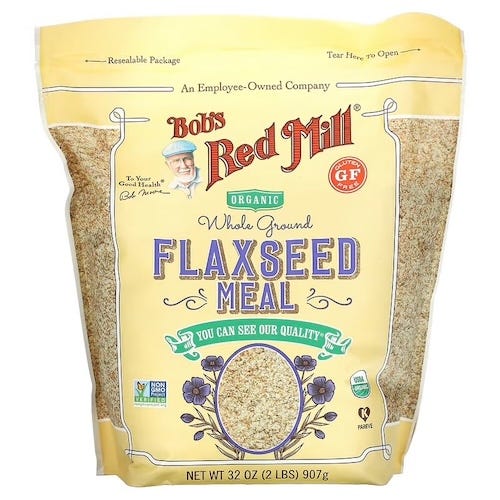
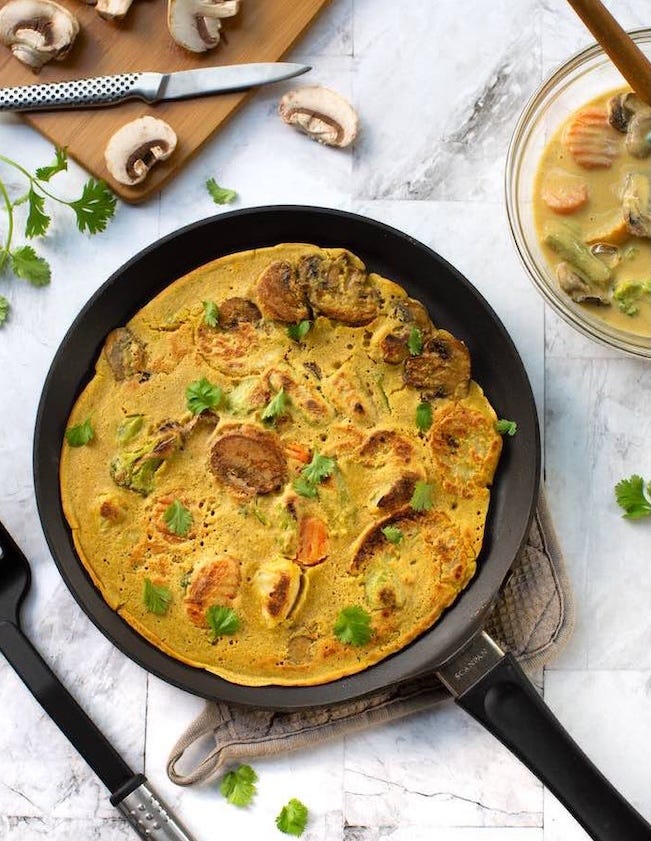
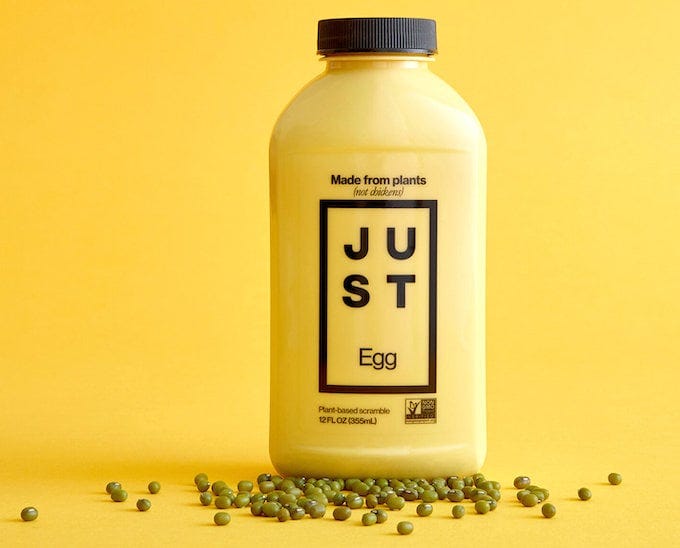
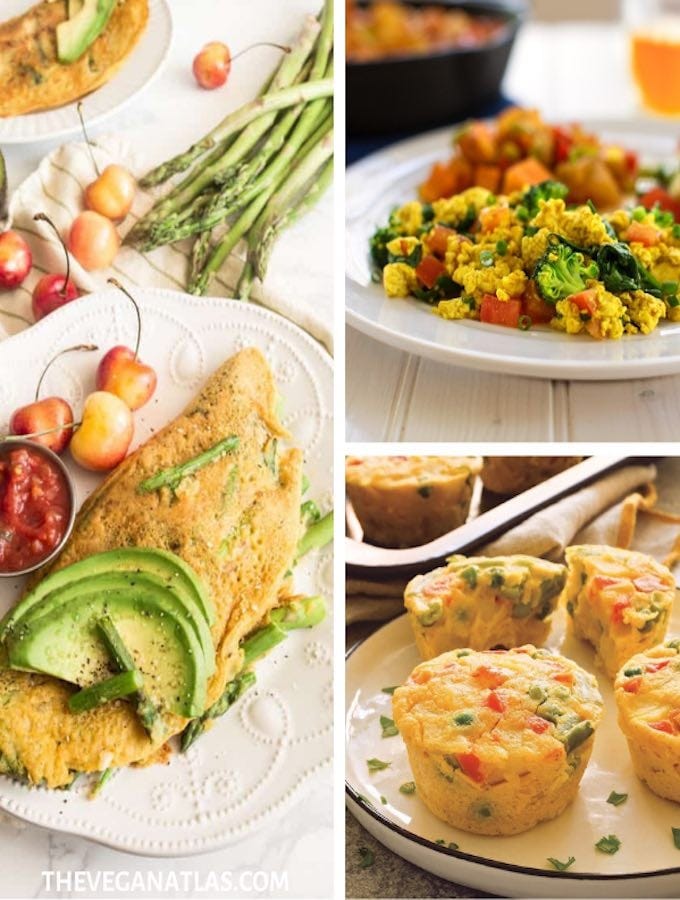
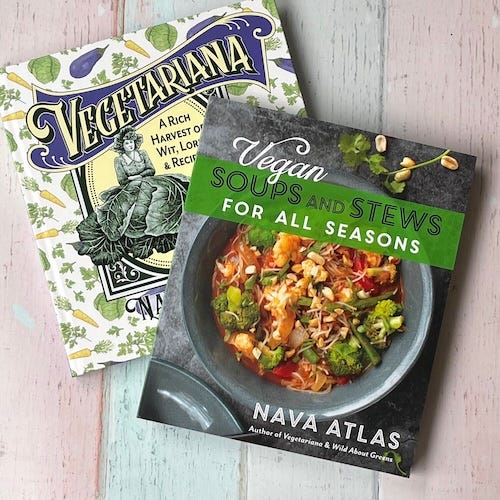
Great info here! A must read for plant-based cooking and baking.